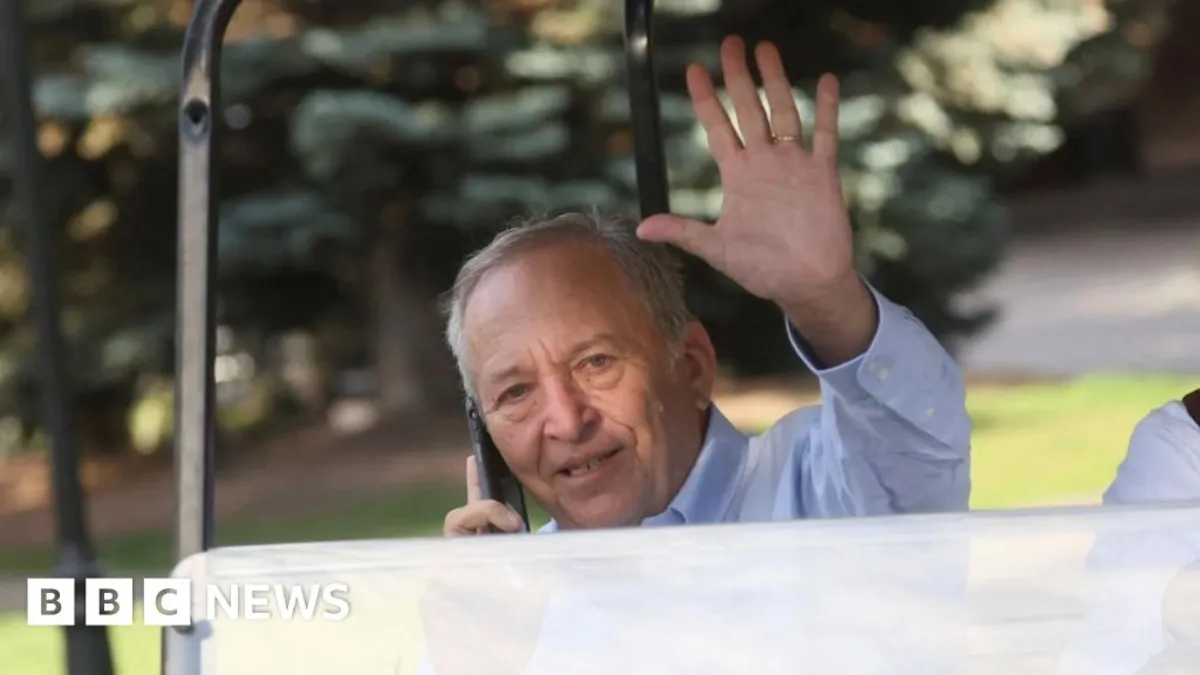
Larry Summers, a prominent Harvard professor and former treasury secretary, has announced that he will be stepping back from public life. This decision follows the recent release of documents by the House oversight committee, which revealed troubling email exchanges between Summers and convicted sex offender Jeffrey Epstein. In these communications, Epstein referred to himself as Summers' "wing man," raising significant concerns about Summers' judgment and associations.
In a statement to Politico, Summers expressed deep regret for his past communications with Epstein. "I am deeply ashamed of my actions and recognize the pain they have caused," he stated. "I take full responsibility for my misguided decision to continue communicating with Mr. Epstein." He emphasized that while he will continue to fulfill his teaching obligations at Harvard, he plans to step back from public commitments as part of an effort to "rebuild trust and repair relationships" with those close to him.
The Center for American Progress, a left-leaning think tank, confirmed that Summers would be ending his role as a "distinguished senior fellow." This announcement comes in the wake of bipartisan calls from lawmakers urging various institutions to sever ties with Summers. Notably, Democratic Senator Elizabeth Warren stated during an interview with CNN that Summers should be held accountable for his long-standing relationship with Epstein. She articulated her concerns, saying, "If he had so little ability to distance himself from Jeffrey Epstein, then Summers cannot be trusted to advise our nation’s politicians, policymakers, and institutions."
A senior official from the Trump administration echoed the sentiment that institutions should reconsider their associations with Summers, particularly in light of his relationship with Epstein. The anonymous source pointed out, "It’s shocking that Larry Summers remains a paid contributor to Bloomberg News, on the board of OpenAI, and is tenured at Harvard." This criticism reflects growing unrest about Summers' ability to maintain a reputable position following the resurfacing of his connections to Epstein.
In light of these revelations, Summers is now the subject of a new investigation initiated by former President Donald Trump. Trump instructed Attorney General Pam Bondi to launch an inquiry into several Democrats and institutions after documents included emails suggesting Trump may have had knowledge of Epstein’s misconduct. The emails, spanning from 2013 to early 2019, depicted Summers and Epstein discussing personal opinions on politics and relationships, further complicating Summers' public image.
Summers has faced controversy in the past, including losing his presidency at Harvard in 2006 due to sexist remarks about female academics. The recent emails have reignited discussions about his ties to Epstein and the implications they carry. In a 2017 email to Epstein, Summers controversially remarked on societal perceptions of serious offenses, highlighting his flawed reasoning and lack of awareness about the gravity of Epstein's actions.
Summers reiterated his regrets during an interview with the Harvard Crimson, stating, "I have great regrets in my life. My association with Jeffrey Epstein was a major error of judgment." The college community has expressed outrage over the newly surfaced emails, with statistics professor Joseph K Blitzstein describing the friendship between Summers and Epstein as "disgusting and disgraceful."
As Larry Summers steps back from public engagements, the implications of his connections to Epstein will likely continue to reverberate through academic and political circles, prompting a broader conversation about accountability and the responsibilities of influential figures.